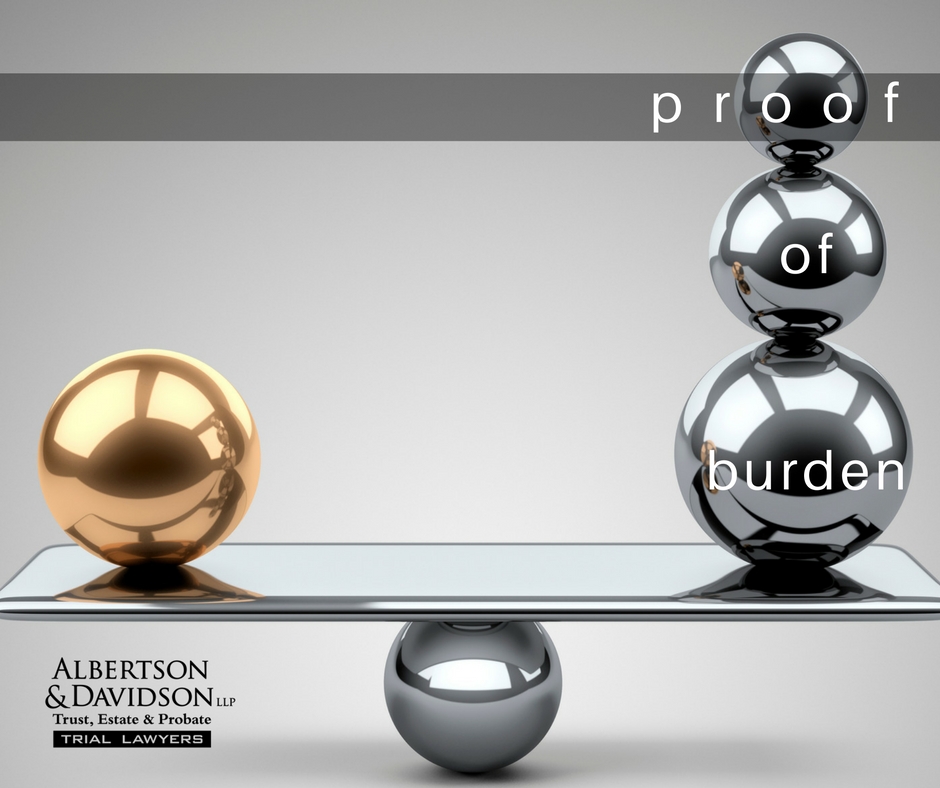
If you are going to file a civil lawsuit, you better know the burden you carry. This is particularly true in Trust and Will lawsuits, where burdens are constantly shifting back and forth depending on the claims being tried.
In civil lawsuits we deal with two different types of burdens of proof:
- preponderance of the evidence, and
- clear and convincing evidence.
Civil cases do NOT use the beyond a reasonable doubt standard employed in criminal trials.
Preponderence of the evidence is simply proving you are more likely right than not. It is proving your case by 50% and just a smidge more. If you are 50% and a smidge right, then you are supposed to win under a preponderance of the evidence standard.
Clear and convincing evidence is a higher burden because it must go beyond just 50% and a smidge. By providing clear and convincing evidence you are establishing that you are clearly right in what you are claiming.
In Trust and Will matters it is the person who files the initial petition in court who carries the burden of proof. Most of the time, preponderance of the evidence is the standard used—not clear and convincing. There are a few exceptions where clear and convincing applies, but that is a minority of situations.
When two parties file competing petitions, then each will carry a burden of proof on their own petition. That means each side could potentially have a burden to prove, which is much different from the typical civil case where you have one plaintiff with a burden and one defendant without a burden.
To further complicate the matter, burdens can shift at times. In Trust and Will cases the burden shift for undue influence is mostly widely used. If you prove that the wrongdoer had a confidential relationship, procured the document, and received an undue benefit, then you can shift the burden to the wrongdoer to prove a lack of undue influence.
The point is to know what burden you carry in your Trust or Will lawsuit. The last thing you want to do is walk into court and not know who has the burden of proof. If the burden is yours, then you have to work a little harder to produce evidence that proves you are right under whatever standard you are applying.
If you don’t know your burden, then you may just waste your time in trial by not providing the necessary evidence to the judge. So before you get too far into your Trust or Will case, figure out your evidentiary burdens, you’ll be glad you did.
